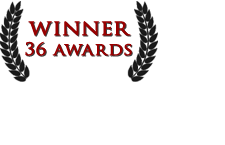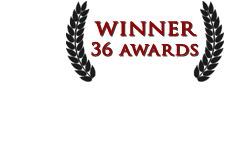Born out of desire to counteract the violent drug industry and police oppression, Grupo Cultural AfroReggae – GCAR (“AfroReggae Cultural Group”) was formed in January 1993, initially around AfroReggae Notícias (“AfroReggae News”) – a newspaper designed to add value and disseminate black culture. The newspaper primarily targeted young people interested in reggae, soul, and hip-hop, among other musical genres. The group soon thereafter opened its first Núcleo Comunitário de Cultura (“Culture Community Center”) in the Vigário Geral favela (a slum area) in 1993. In a short period of time, this center was offering its first workshops – dance, percussion, garbage recycling, soccer and capoeira – the foundations for new social projects. GCAR knew exactly what it was seeking with its programs: to offer a cultural and artistic education for adolescents living in slums. By affording local youth more chances of strengthening their citizenship, GCAR hoped to provide a viable path away from entanglement in the prevalent drug trade.
In 1997, AfroReggae opened Centro Cultural AfroReggae Vigário Legal (“Vigário Legal AfroReggae Cultural Center”), a landmark in its history. With structured facilities within the community, they were able to enhance the quality of their programs and transform the initiative into a reference point for social and cultural practices in the city of Rio de Janeiro.
In conjunction with workshops in music, capoeira, theater, hip hop and dance, Vigário also became the home for the “Criança Legal” project, designed to give support to preschool kids through programs aimed at socializing and literacy. Participant children’s parents also take part in weekly meetings where subjects such as domestic violence and personal hygiene are discussed; they also receive basic-food baskets.
Of all activities offered, music has been the major driver in attracting teenagers to participate in GCAR. The success attained by Banda AfroReggae, both in artistic terms and as a social-project model, has attracted other teenagers who want to follow this same path. Today there are three other bands that have also been making public presentations: Banda Makala Música e Dança, Afro Lata and Afro Samba. There are also subgroups: Afro Mangue, Tribo Negra, Akoni and Kitôto.
Additional Projects
AfroReggae implemented the “Rompendo Fronteiras” (“Breaking Barriers”) project in October 2001 in Parada de Lucas, a slum next to Vigário Geral, where drug gangs have been fighting since 1985. This program was designed to fight against poverty and violence through educational programs including basic IT/computer courses.
In the Cantagalo-Pavão-Pavãozinho slum, GCAR makes use of circus arts, such as juggling and acrobatics programs, to encourage social activity and self-confidence for teenagers. Since 1996, this community has also had a circus workshop at Ciep de Ipanema’s amphitheatre. Through these projects, GCAR created Trupe Levantando a Lona, which makes public presentations and helps students become professional artists.
In February 2002, GCAR began offering workshops through which teenagers are offered courses in the production of documentaries. The intent is to establish an audiovisual center where the students can work together with a professional team.
In the Cidade de Deus slum, AfroReggae formed a partnership with Casa de Santa Ana, which provides services to the elderly. The project there is the choir “Coral de Idosos,” which works together with the percussion band Banda Makala (former Banda AfroReggae II), and involves both teenagers and the elderly.
Other programs are: Programa de Comunicação (“Communication Program”), comprised of AfroReggae Notícias ARN (AfroReggae News) newspaper; the radio programs AfroRitmia and Baticum, broadcasted through Viva Rio AM 1180 KHZ and through the portal Viva Favela; the AfroReggae.org site, intended to become an internet portal where people can find information about GCAR and about the Afro-Brazilian culture; and finally, AfroNet, a service through which fact sheets are sent via e-mail, to all people involved in any of our activities, events and initiatives.
Programa de Saúde (Health Program) is conducted by Trupe da Saúde, a theatrical group comprised of adolescents from Vigário Geral, which makes use of circus-like presentations to provide important healthcare tips to underprivileged communities; Barraca da Saúde, which distributes information papers about STDs/AIDS, hygiene, diseases in general, breast feeding, baby care and condoms in Morro do Cantagalo and Lapa, and in GCAR’s events; and Kizumba, a fact sheet prepared by GCAR to announce health program-related subjects.
AfroReggae also established an arts production company – ARPA, Afro Reggae Produções Artísticas – to give support to the professional careers of subgroups formed as a result of its social projects, especially Banda AfroReggae, and to contribute with the NGO, since almost 30% of funds raised with the events are invested in GCAR.
AfroReggae has been conducting initiatives designed to invest in the potential of underprivileged teenagers, taking education, culture and art to places marked by violence and the drug trade. The movement is actively working to bridge the gap between white and black people, between the rich and the poor.
Vigário was GCAR’s first experience. Thanks to the encouragement and self-esteem of those living in the slums, known nationwide for its violence, this community is now recognized as an artistic and culture-generating center. GCAR hopes that its programs in Parada de Lucas, Cidade de Deus, Cantagalo, and Pavão-Pavãozinho will be equally successful.
For more information on the Grupo Cultural AfroReggae, please visit the official website: https://www.afroreggae.org. (Site in Portuguese)



